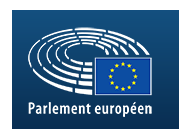Document type: Written answer E-001634 from the European Commission
Authors: question: Aurélia Beigneux (ID). Answer: Mr Sinkevičius on behalf of the European Commission
Question in French: On social media, influencers are unintentionally complicit in the significant illegal trade in exotic animals, to the detriment of animal welfare.
Influencers who choose to post content with exotic animals on social media do so to generate views at all costs, in a bid to create a loyal fan base and to improve the search engine optimisation of their posts. The experience of digital entrepreneurs shows that content featuring animals is more likely to generate clicks.
First popularised by influencers from the oil monarchies, this trend has rapidly spread across Europe. Its consequences are twofold: firstly, animals are being removed from their natural habitats, which itself carries many risks, and secondly, it encourages internet users and other influencers to do the same.
My question is simple: Given that it is at odds with animal welfare and that it fuels the illegal trade of the species concerned, does the Commission intend to take action to regulate this type of content?
Answer: One of the objectives of the revised EU Action Plan against Wildlife Trafficking[1], adopted on 9 November 2022, is to reduce consumer demand for illegally traded wildlife. Actions provided include awareness-raising and demand reduction activities targeting in particular consumers in the EU but also in other major destination markets. An important aspect will be to raise consumer awareness on how to distinguish between legal and illegal trade. The Commission will carry out a pilot project on demand-reduction, as proposed by the European Parliament, which will also look at the role of social media in the triggering of the demand for exotic animals.
The Digital Services Act (DSA)[2] adopted in 2022 has addressed risks and challenges posed to end users by online intermediation services by imposing a number of due diligence obligations on the providers of such services.
While the DSA neither mentions the specific term of ‘influencers’ nor directly regulates their activity, it makes it clear in Recital 72 that ‘know your business customer’ provisions (Article 30) applicable to online marketplaces also apply to influencers. Moreover, Article 26(2) DSA includes a tool to facilitate compliance by influencers using a platform in order to provide content with commercial communications, by providing a functionality through which the user can declare if the service contains commercial communications, thus triggering specific markings in this regard.






